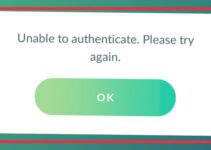Mobile advertising identifiers (MAIs) are unique identifiers that companies can use to monitor users throughout the internet and on mobile apps. Smartphone owners can reset or disable them completely. They are designed to be anonymous.
The promise of anonymity is a hoax, according to our research. There are a number of companies that provide tools for anyone with data to match IDs with other databases. As soon as we got our hands on the data, we were able to identify more than 2,000 devices that were intended to be anonymous.

Data is Part of the Collection
Users of smartphones won’t know if their data is part of the collection or if their specific movements have been sold. There are no restrictions requiring corporations to explain what the data is used for or how long it will be kept.
Read Also:
- Girl At Truck Stop Looks Like Gabby
- Where Did Brittney Griner Go To College
- How Long Can Lobsters Live Out Of Water
‘Legally, the data does not have to be deleted at any point. Most states don’t allow people to ask for the deletion of their location data even if they find out where the information are being sold. For years, their movements may be purchased and sold to countless parties.
Furthermore, the possibility that their activities could be traced back to their id is something that will never be eliminated. As Donald Trump’s political event descended into anarchy on January 6, a new collection of data has emerged, this time tracking the smartphones of thousands of Trump supporters,
rioters, and onlookers in Washington, D.C. The Capitol riot claimed the lives of at least five people. The mob’s digital debris, including location data, geotagged images, facial recognition, surveillance cameras, and crowdsourcing, has been vital in bringing them to justice.
Understanding Capitol’s Significance
Before delving into the role of apps in tracking individuals at the Capitol, it’s essential to grasp the significance of the Capitol itself. The United States Capitol, located in Washington, D.C., is the iconic home of the United States Congress.
It serves as a symbol of democracy, governance, and the very essence of the American political system. The Capitol holds immense historical and cultural importance, making it a focal point for political events, protests, and gatherings.
The Role of Smartphones and Apps
Smartphones have become ubiquitous in modern society, and their prevalence has made them invaluable tools for communication, information access, and documentation.
As the events of January 6 unfolded, numerous individuals present at the Capitol carried smartphones, which were loaded with various applications designed for purposes ranging from social networking to navigation.
App Tracking and Geolocation
Several apps use geolocation services to enhance their functionality. These apps, with user consent, access the device’s GPS or network-based location to provide location-specific information, services, or content. While this feature can be beneficial, it also poses privacy concerns when misused or exploited.
During the Capitol breach, the geolocation data from smartphones became instrumental in tracking the movements of individuals involved. Apps that had access to users’ locations inadvertently facilitated the monitoring of their presence and actions within the Capitol and its vicinity.
Social Media Platforms
Social media platforms played a pivotal role in the events surrounding the Capitol breach. Users often share their experiences, opinions, and real-time updates on these platforms. Many individuals present at the Capitol took to social media to document the unfolding events.
Platforms like Facebook, Twitter, Instagram, and Snapchat allow users to tag their locations when posting content. These location tags, along with the timestamps of posts and images, provided valuable data for tracking and reconstructing the sequence of events.
Navigation Apps
Navigation apps, such as Google Maps and Apple Maps, are among the most popular location-based services. They assist users in finding directions, locating points of interest, and estimating travel times.
During the Capitol breach, some individuals relied on navigation apps to navigate the complex layout of the Capitol building and the surrounding area.
By analyzing the geolocation data from these apps, authorities were able to ascertain the movements of specific individuals, helping in their identification and apprehension.
Ride-Hailing and Transportation Apps
Ride-hailing services like Uber and Lyft, as well as public transportation apps, offer convenience for individuals traveling to and from specific locations. On the day of the Capitol breach, these apps left digital traces of users’ pick-up and drop-off points.
Law enforcement agencies and investigative bodies leveraged this data to identify the routes taken by certain individuals and the transportation methods they used.
Privacy Concerns and Ethical Considerations
The events at the Capitol underscore the ethical and privacy concerns associated with app tracking and geolocation data. While these technologies can enhance our lives in various ways, they also pose potential risks to individuals’ privacy and security.
It is crucial for users to be aware of the permissions they grant to apps, particularly regarding location data. Understanding the implications of sharing such data and regularly reviewing app permissions can help individuals maintain better control over their privacy.
Legal Implications
The use of app data for tracking individuals at the Capitol raised legal questions and ignited debates about the balance between public safety and individual privacy. Privacy advocates have called for stricter regulations on data collection and usage by tech companies.
Several lawsuits emerged in the aftermath of the Capitol breach, challenging the use of geolocation and social media data as evidence. These cases have prompted discussions about the admissibility of such evidence in court and the need for clearer legal guidelines.
Read Also:
- They Remodeled Before Covid. Heres What
- What Is A Bear Hug In Business
- March Madness Gonzaga Falls Short Again As The Favorite
Last Words
Among other reasons, the person gave this information was angered by the events of January 6. An investigation, accountability and justice were sought by the person who made the request. People were worried about how this nefarious data harvesting might affect their privacy.
Besides the fact that it occurs, the majority of consumers are unaware that their personal data is being collected, making it open to misuse by law enforcement, criminals, or even a mob of online users. This individual asked to remain anonymous for legal reasons, as they were not authorised to divulge the material and might face serious penalties for doing so….”

